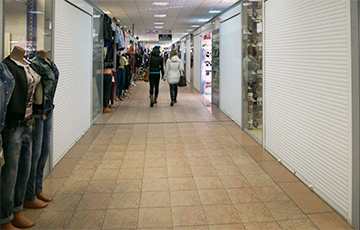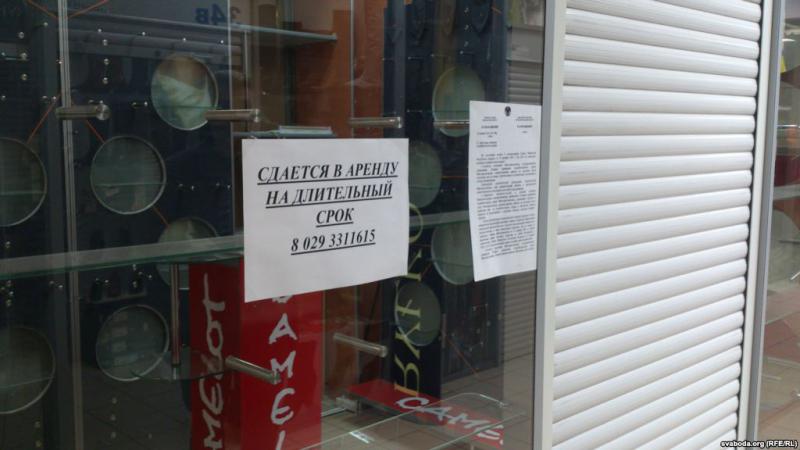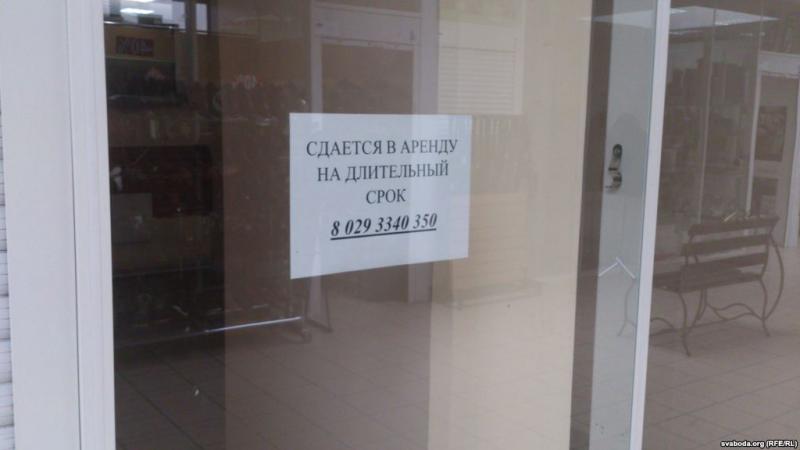Market traders: Only few “kamikazes” will work after March 1
78- 18.02.2015, 11:37
- 146,901

The authorities eliminate sole traders as a class.
The forum of small businessmen, who was held in Minsk lately and attracted many market traders, failed to solve the main problem – to postpone the coming into effect of Lukashenka's decree No. 222 that obliges sellers to have accompanying documents for every item they sell from March 1, Radio Svaboda reports.
Representatives of the trading sector say thousands of market traders will have to stop working because distribution centres in Russia, where most of them buy clothes, work without certificates. How much time will shopping centres live?
Many pavilions in the shopping centre Kupalauski in the centre of Minsk meet customers with closed roller shutters. Many ads for sale, rent and exchange can be seen. The reason is that owners are uncertain about the future. Controlling agencies promise harsh punishment for trading without certificates relating to the origin and quality of goods. One of the sellers is sure that only few “kamikazes” will remain here after March 1:
“Okay, I can clear goods through customs, bring certificates and so on, but I won't sell it here alone! Well, two other sellers can join me. We have only few traders here. The mall will be empty after March 1. This is a deadlock. They authorities do not make steps forward to us. They treat us as class enemies. I am shocked, as well as other people. I am sure that 70 or more percent of pavilions here will be closed after March 1.”
Viktar has been on pension for several years. Retail sale was another source of living in addition to his small pension. He says people now regard shopping as luxury:
“I offer jeans, but even young people say, 'Thank you, we've repaired our old jeans'. It is a clear answer. People just don't have money. When the dollar cost 10,000-11,000 rubles, there were no empty pavilions, we had customers. A pair of trousers cost 500,000-600,000 rubles earlier, but now, when the dollar costs 15,000 rubles, the price of trousers has reached 800,000-900,000. If you earn 4 million, you have to spend one third on trousers. A dress costs 1,200,000 rubles. Some cost 900,000, some cost 2 million. But no one will spend half of his or her salary on clothes. Utility bills and costs of other services rose. This is the dead-end.”

Until recently, the shopping mall Zerkalo (Mirror) near the Kamarouski market has been a popular and prestigious place among traders. Volha, who owns a pavilion here, says sellers are leaving the mall en masse.
“Many businessmen close their stalls in shopping centres. Here, at Zerkalo, more than 40% of pavilions are empty. I used to have a pavilion at Siluet shopping centre. When I opened it two years ago, there was a queue to buy a shop at Zerkalo. It was hard to get a place here. Now people sell their shops for nothing. No one needs them. No one wants to buy them. I think this particular shopping centre has no future.”

The situation looks a bit better at Siluet, but local sellers say everything will change at the beginning of the next month. No one wants to work when controllers will come with inspections. One of the sellers notes he is surprised that the authorities bite the hand that feeds them:
“You can look at taxes. When I visited the tax department earlier, inspectors worked in four or five offices. Now only one office is enough to serve all people. They hired the people who know nothing. One or two old professionals know something, but the rest have no idea of how to work. They cannot pay salaries to all, tax officers are being laid off. I don't know how they will organise their inspections and audits. They should have larger staff to cope with it. I don't think the state will succeed, especially in what concerns confiscations and other repressive measures.”










